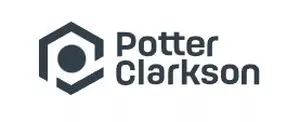- with readers working within the Banking & Credit industries
On the basis of two new cases from the US courts, we have, as a follow-up on our previous article on health-washing, dived into current EU practice to shed light on misleading health claims in the confectionery industry.
These recent lawsuits - Austin's Natural Frozen Pops, Inc. v. Jonny Pops, LLC and Morris v. Welch Foods Inc - highlight the ongoing issue of deceptive health claims on products that are essentially confectionary. Even though final decisions are yet to be made, the cases serve as a stark reminder of the necessity for confectionary manufacturers to adhere to transparent and truthful labelling practices.
AUSTIN'S NATURAL FROZEN POPS, INC. V. JONNY POPS, LLC AND MORRIS V. WELCH FOODS INC AT A GLANCE
In Austin's Natural Frozen Pops, Inc. v. Jonny Pops, LLC, GoodPop allege that JonnyPops misleads consumers into believing its popsicles are made with 100 % fruit, while the main ingredients are water and added cane sugar.
The products allegedly contain 66% more added sugar per fluid ounce than a sugar-sweetened soda, raising significant health concerns for the consumer. The plaintiff claims that JonnyPops has grown its sales by marketing these high-sugar products as healthy which could harm both consumers and truthful competitors if the “real fruit” claim misleads.
Similarly, in Morris v. Welch Foods Inc., a woman has filed a class action lawsuit to represent New York consumers, alleging that the company's yogurt snacks are deceptively labelled as healthy yogurt products even though they contain unhealthy ingredients like sugar and palm kernel oil.
The plaintiff argues that the product's packaging misleads consumers into thinking the snacks are healthy due to the presence of fruit and yogurt imagery, despite lacking the active bacterial cultures necessary for yogurt. The lawsuit claims the snacks are actually coated in a candy-like substance rather than yogurt, misleading consumers.
THE IMPACT OF DECEPTIVE HEALTH CLAIMS ON CONSUMER PERCEPTION
A study in Health Promotion International from 2021 concludes that health-washing in snack foods significantly misleads consumers, particularly those with lower nutritional awareness. The study calls for stricter regulations and enhanced public education to address these deceptive marketing practices whilst highlighting the need for clearer labeling and stronger oversight to protect consumers from being misled by false health claims.
In Addition, an article from FoodNavigator highlights the widespread issue of health-washing in snacks. It states that misleading health claims are commonly used to make these snacks appear more nutritious than they are. This deceptive practice has led to significant consumer confusion, with 72% of questioned consumers reporting that they feel misled by health claims on snack packaging.
To address this problem, researchers call for stricter regulations to ensure the accuracy of health claims on food products. Enhanced consumer education is also crucial. It helps individuals recognize and avoid misleading claims. Proposed solutions include clearer labelling and stronger oversight to protect consumers from deceptive marketing practices.
WHAT ARE THE EU REGULATIONS RELATING TO HEALTHWASHING IN THE CONFECTIONARY INDUSTRY?
The European Union's Regulation (EC) No 1924/2006 serves as a comprehensive framework for managing the use of nutrition and health claims on food products. This regulation is designed to ensure that any claims made are transparent, accurate, and grounded in scientific evidence. It is a critical tool for protecting consumers from misleading marketing practices that could distort their understanding of a product's health benefits.
The claims contained within the regulation include:
- Nutrition Claims: these claims often
highlight individual positive nutritional attributes, such as
"low sugar" or "source of fiber," without
providing a complete picture of the product's nutritional
profile. For example, a candy product might be marketed as
"low fat," yet still contain high amounts of sugar and
calories
- Health Claims: these claims involve a specific health-related benefit of the product and require more comprehensive scientific substantiation to be used legally. They are often more difficult to apply to sweets since most candy products cannot meet the necessary criteria to make such claims.
Companies often emphasise specific nutritional benefits to make products appear healthier than it is.
This can lead to consumer confusion, as consumers might assume that the product is healthier overall than it is. For example, consumers may mistake a ‘low fat' claim in candy as indicating that the product is generally healthy, even if it contains other unhealthy ingredients. Based on the regulation and case-study it can be stated that making "candy" appear healthier usually involves unjustifiably using nutrition claims rather than direct health claims.
RECENT CASE LAW AND REPORTS RELATING TO HEALTHWASHING CONFECTIONARY
In 2023, Italy's Competition and Market Authority fined the confectionery company Vivil A. Muller €10,000 for misleading use of the ‘Nutri-Score' system on its candy products. The company had labeled its products with a ‘B' rating and green color, suggesting they were healthier than other products with orange or yellow ratings.
In addition, Marks & Spencer's Percy Pig sweets have previously faced criticism for misleading packaging. In 2020, their packaging prominently displayed fruits and claims of "no artificial colors or flavors," which mislead consumers into thinking the sweets were a healthy choice. Despite these claims, the sweets contained high levels of sugar, which contradicted the healthy image portrayed. The case underscores the need for transparent and truthful labelling to protect consumers from being misled and the case is still relevant while PERCY PIG remains on the market.
A SAFE (Safe Food Advocacy Europe) report titled "Ensuring Proper Food Information to Consumers from Misleading Use of 'Natural' on Food Products," published in November 2020, provides a comprehensive analysis of the misuse of the term "natural" in food labelling and its impact on consumers.
Here are two case studies from the report highlighting misleading practices:
- Zeaxanthin: Natural vs. Synthetic: The report discusses the case of synthetic zeaxanthin, where the term "synthetic" was removed from labeling, misleading consumers into believing the product was of natural origin.
- Melatonin in Food Supplements: Another example is melatonin, where consumers often believe the substance in supplements is natural rather than synthetically produced. This case illustrates how the term "natural" can mislead consumers about the product's origin and composition.
The report emphasizes that consumers generally associate "natural" with positive attributes such as minimal processing and the absence of additives. However, many products labeled as "natural" do not meet these expectations, containing synthetic ingredients or additives that contradict the natural claim. See the fill report here: SAFE-Report-on-natural-campaign.pdf (safefoodadvocacy.eu)
CHECKLIST FOR MAKING A NUTRITION CLAIM
Step |
Question |
Yes |
No |
|---|---|---|---|
1 |
Is the nutrition claim included in the annex to the Claims Regulation? |
Proceed to the next step |
The nutrition claim may not be used |
2 |
Does the nutrition claim meet the conditions set out in the annex to the Claims Regulation? |
Proceed to the next step |
The nutrition claim may not be used |
3 |
Does the nutrition claim meet the general conditions that apply to all claims listed in the Claims Regulation? |
The nutrition claim may be used |
The nutrition claim may not be used |
CHECKLIST FOR MAKING A HEALTH CLAIM UNRELATED TO DISEASE RISK REDUCTION
Step |
Question |
Yes |
No |
|---|---|---|---|
1 |
Is the health claim included in the list of authorised claims in Regulation 432/2012? |
Proceed to the next step |
The health claim may not be used |
2 |
Does the health claim meet the conditions set for the health claims in question? |
Proceed to the next step |
The health claim may not be used |
3 |
Does the health claim meet the general conditions that apply to all claims listed in the Claims Regulation? |
The health claim may be used |
The health claim may not be used |
*Note: The health claim may still be "on hold" in the European Claims Register. See the Regulation or the European Claims Register for more details.
In conclusion, it is imperative for companies in the confectionery industry to adhere to transparent and truthful labeling practices. The recent US cases and EU regulations highlight the significant impact deceptive health claims can have on consumer trust and market fairness.
REFERENCES:
The content of this article is intended to provide a general guide to the subject matter. Specialist advice should be sought about your specific circumstances.


